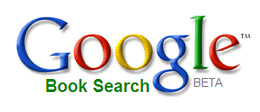
By Susan Gluss
United States Court of Appeals Judge Denny Chin has found that Google Book Search—a project to
digitize millions of books from major libraries across
the country—constitutes fair use under U.S. copyright law. In his decision, he
cites a brief submitted by Berkeley Law’s
Samuelson Law, Technology & Public Policy Clinic
written on behalf of dozens of law and humanities scholars.
Google launched
its book search project more than a decade ago. In a nutshell: it digitizes
books, gives a copy of the digital versions back to the libraries, and creates
a fully searchable index of the book text. But book authors claimed copyright
infringement, ensnarling the project in litigation for years.
In Judge Chin’s
decision in favor of Google (Authors Guild, Inc. v. Google Inc.,
S.D.N.Y., No. 05 Civ. 8136 (DC), 11/14/13), he quotes extensively from the
clinic’s 2012 brief. Specifically, he notes the importance of scholarly “text
mining,” which allows scholars
to do novel research about everything from United States history to the
evolution of technological change in society.
“Google Books permits
humanities scholars to analyze massive amounts of data . . . the literary
record created by a collection of tens of millions of books,” Chin
wrote. “Researchers can examine word frequencies, syntactic patterns, and
thematic markers to consider how literary style has changed over time.”
The ability to determine how
often different words or phrases appear in books at different times “can
provide insights about fields as diverse as lexicography, the evolution of
grammar, collective memory, the adoption of technology, the pursuit of fame,
censorship, and historical epidemiology,” he added.

Samuelson
Distinguished Professor of Law Pamela Samuelson, who has argued tirelessly for universal digital libraries that “would vastly expand the scope of research and education worldwide,” applauded Judge Chin’s ruling.
“By recognizing that Google Book
Search has created substantial societal value in enabling greater access to the
knowledge embodied in books—a value our brief highlighted—Judge Chin has given
us a fair use ruling that balances the interests of the public and of rights
holders that will have important implications for digital libraries and other
efforts to enhance public access to knowledge,” she wrote in an email.

Urban
The Samuelson Clinic brief was
co-authored by Jason
Schultz and Matthew Sag,
along with clinic Director Jennifer
Urban and former fellow Babak Siavoshy.
“The Clinic was able to help explain how digitized texts
enable truly novel forms of research and societal understanding,” Urban wrote
in an email. “Humanities scholars now have searchable access to the literary
record found in tens of millions of books, which allows them to find answers to
questions they could literally never ask before. This is a terrific increase in
knowledge.”
Urban said Chin’s decision underscores the substantial benefits to society from book
digitization. “These types of socially beneficial uses are precisely the types
of uses that copyright is meant to support through the fair use doctrine,” she
said.